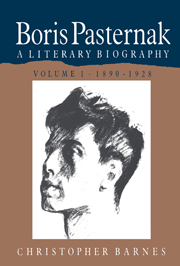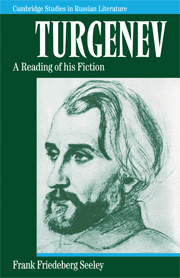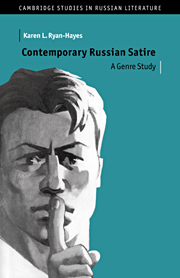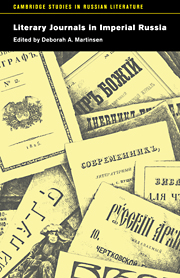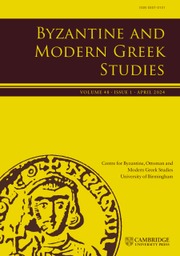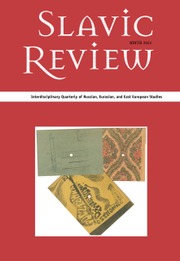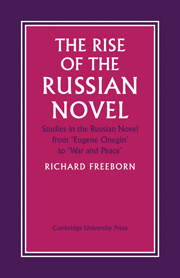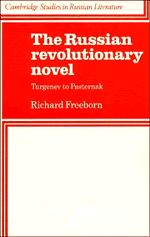
The Russian Revolutionary Novel
Turgenev to Pasternak
Part of Cambridge Studies in Russian Literature
- Author: Richard Freeborn
- Date Published: May 1985
- availability: Available
- format: Paperback
- isbn: 9780521317375
Paperback
Other available formats:
eBook
Looking for an examination copy?
This title is not currently available for examination. However, if you are interested in the title for your course we can consider offering an examination copy. To register your interest please contact [email protected] providing details of the course you are teaching.
-
Professor Freeborn's book is an attempt to identify and define the evolution of a particular kind of novel in Russian and Soviet literature: the revolutionary novel. This genre is a uniquely Russian phenomenon and one that is of central importance in Russian literature. The study begins with a consideration of Turgenev's masterpiece Fathers and Children and traces the evolution of the revolutionary novel through to its most important development a century later in Pasternak's Doctor Zhivago and the emergence of a dissident literature in the Soviet Union. Professor Freeborn examines the particular phases of the genre's development, and in particular the development after 1917: the early fiction which explored the relationship between revolution and instinct, such as Pil'nyak's The Naked Year; the first attempts at mythmaking in Leonov's The Badgers and Furmanov's Chapayev; the next phase, in which novelists turned to the investigation of ideas, exemplified most notably by Zamyatin's We; the resumption of the classical approach in such works as Olesha's Envy, which explore the interaction between the individual and society. and finally the appearance of the revolutionary epic in Gorky's The Life of Klim Samgin, Sholokhov's Quiet Flows the Don, and Alexey Tolstoy's The Road to Calvary. Professor Freeborn also examines the way this kind of novel has undergone change in response to revolutionary change; and he shows how an important feature of this process has been the implicit assumption that the revolutionary novel is distinguished by its right to pass an objective, independent judgement on revolution and the revolutionary image of man. This is a comprehensive and challenging study of a uniquely Russian tradition of writing, which draws on a great range of novels, many of them little-known in the West. As with other titles in this series all quotations have been translated.
Reviews & endorsements
' … a subtle, generous, and informative study, which will be of lasting value to scholar and general reader alike'. The Times Higher Education Supplement
See more reviews' … the book has the hallmark of fine scholarship. It combines erudition with elegance and always stimulates and challenges.' Slavonic Review
Customer reviews
Not yet reviewed
Be the first to review
Review was not posted due to profanity
×Product details
- Date Published: May 1985
- format: Paperback
- isbn: 9780521317375
- length: 316 pages
- dimensions: 216 x 140 x 18 mm
- weight: 0.4kg
- availability: Available
Table of Contents
Preface
Introduction
1. Egoistic nihilism and revolutionary nihilism
2. Proletarian heroism and intelligentsia militancy
3. The revolutionary novel
4. The revolutionary epic
5. Revolution and resurrection
Conclusion
Notes
Bibliography
Index.
Sorry, this resource is locked
Please register or sign in to request access. If you are having problems accessing these resources please email [email protected]
Register Sign in» Proceed
You are now leaving the Cambridge University Press website. Your eBook purchase and download will be completed by our partner www.ebooks.com. Please see the permission section of the www.ebooks.com catalogue page for details of the print & copy limits on our eBooks.
Continue ×Are you sure you want to delete your account?
This cannot be undone.
Thank you for your feedback which will help us improve our service.
If you requested a response, we will make sure to get back to you shortly.
×
